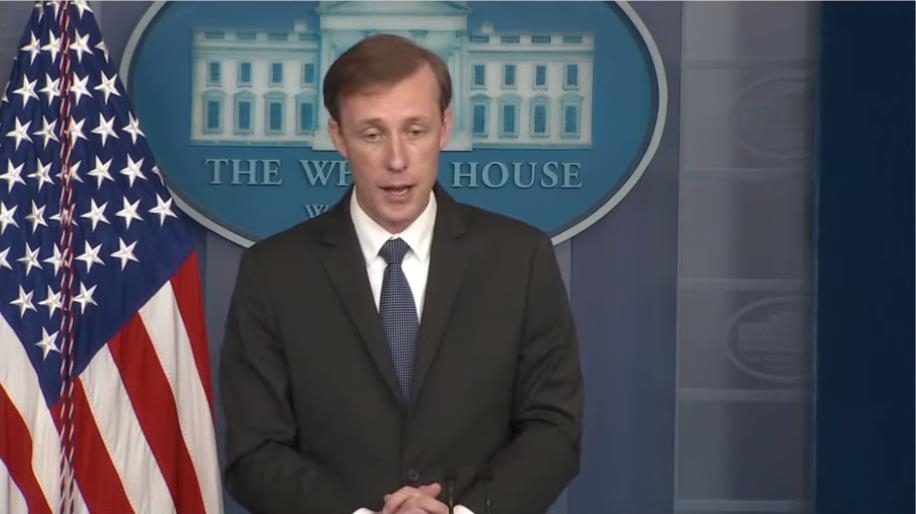 |
The image captured from the website of the White House shows National Security Adviser Jake Sullivan speaking in a press briefing at the White House in Washington on Monday. (White House) |
WASHINGTON -- US President Joe Biden currently does not have a trilateral summit planned with his South Korean and Japanese counterparts, but such a meeting could be possible as he will join a small group of global leaders in Britain, Biden's top security adviser, Jake Sullivan, said Monday.
The remarks came as Biden is set to head for Britain on Wednesday for the Group of 7 (G7) summit in Cornwall.
South Korea is not a G7 member but is invited to this year's meeting as a guest, along with Australia, India and South Africa.
"We don't currently have a trilateral scheduled between the US, Japan and South Korea," Sullivan said in a press briefing.
"But I will tell you there's a possibility for virtually anything in these small spaces where you have just...in this case, 10 or 12 leaders in person there in Cornwall," the national security adviser added.
Biden and his South Korean counterpart, Moon Jae-in, held a bilateral summit in Washington on May 21, which marked Biden's second in-person meeting with a foreign leader since he took office in January. Biden's first summit was with Japanese Prime Minister Yoshihide Suga.
The Biden administration has repeatedly emphasized the importance of close relationship between the US and its allies, as well as cooperation among its allies.
Seoul-Tokyo relations are currently at a low following more than two years of a renewed dispute over their shared history that began when a Seoul court ruled in favor of South Koreans forced into free labor by Japanese firms during Japan's 1910-45 colonial rule of Korea.
Japan has since imposed a series of retaliatory measures, including the imposition of restrictions on South Korea-bound shipments of three key materials used to produce semiconductors in 2019, although it denies any links between such steps and the history issue. (Yonhap)






![[Herald Interview] 'Trump will use tariffs as first line of defense for American manufacturing'](http://res.heraldm.com/phpwas/restmb_idxmake.php?idx=644&simg=/content/image/2024/11/26/20241126050017_0.jpg)
![[Exclusive] Hyundai Mobis eyes closer ties with BYD](http://res.heraldm.com/phpwas/restmb_idxmake.php?idx=644&simg=/content/image/2024/11/25/20241125050044_0.jpg)
